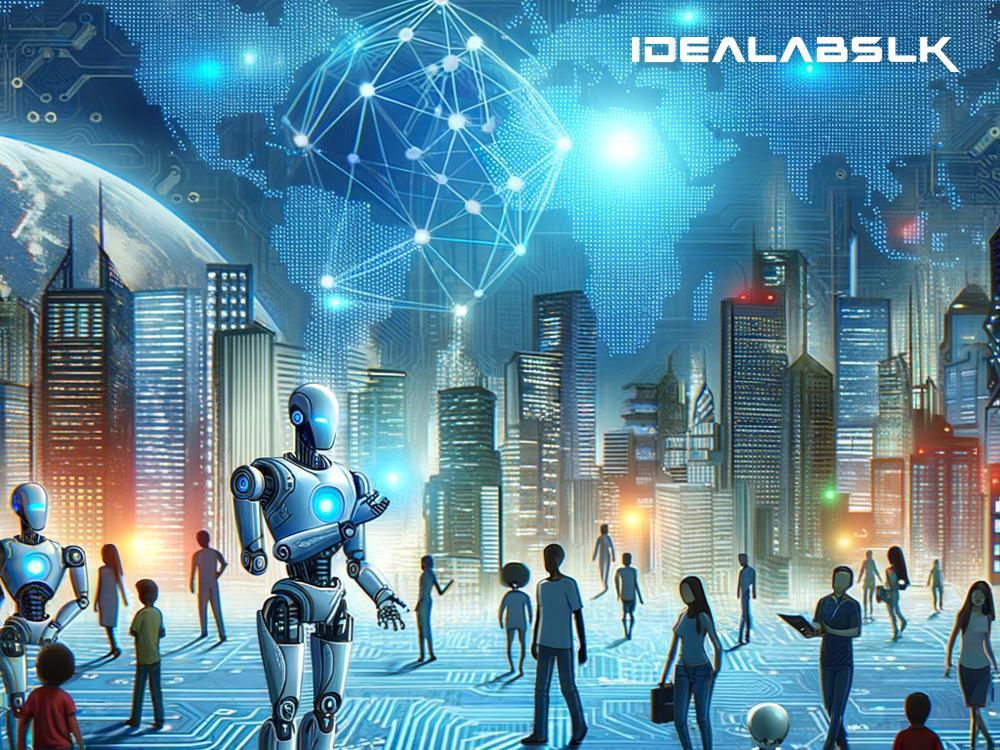The Role of AI in Creating Dynamic Story Arcs in Open-World Games in 2025
Have you ever played a video game that felt like it was made just for you? As if the game somehow knew exactly what you wanted to do next and adapted to your every move? By 2025, this isn't just a dream; it's becoming the norm, thanks to the incredible advancements in Artificial Intelligence (AI) technology. One of the most exciting areas where AI is making a big impact is in the development of dynamic story arcs in open-world games.
An open-world game is a type of video game that invites players to explore vast virtual worlds freely. These games don't force you to follow a specific path; instead, they offer you a sandbox, a playground of digital wonders, where you can create your own adventures. But, crafting a story that feels personal and engaging in such an expansive environment can be challenging. That's where AI steps in, transforming the way stories are told by making them deeply personal and dynamic.
How AI is Revolutionizing Storytelling in Games
AI, in the context of gaming, acts like an ultra-smart director behind the scenes. It watches how you play, learns from your actions, and then tweaks the storyline to suit your play style. It's as if the game is writing itself around you, ensuring that your experience is unique and tailored to the choices you make.
For example, if you decide to play as a character who's more of a diplomat than a warrior, the AI might adjust the storyline to present you with more negotiations and fewer battles. Conversely, if you're all about action, the game will serve up more challenges and enemies to defeat. This flexibility ensures that the game remains engaging and fresh, no matter how many times you play it.
Dynamic Story Arcs: The Heart of Personalized Gaming Experiences
What truly sets apart the AI-driven narrative approach in open-world games is the creation of dynamic story arcs. Unlike traditional linear narratives, where the story follows a set path, dynamic story arcs evolve based on your decisions and actions within the game world.
Imagine a game where helping a character in one part of the world alters the political landscape in another, or choosing to ignore a quest leads to unforeseen consequences down the line. These aren't just simple, cause-and-effect scenarios; they're complex, interconnected events that change the world in real-time. The game world feels alive, and your role within it is significant.
The Challenges and Opportunities
Integrating AI into game development isn't without its challenges. Creating an AI capable of managing countless player decisions and crafting coherent, engaging narratives is a monumental task. It requires massive amounts of data, sophisticated algorithms, and a deep understanding of storytelling principles.
However, the opportunities this technology presents are game-changing (pun intended). Developers can create more immersive and interactive worlds. Players can enjoy gaming experiences that are deeply personal, where they're not just passive participants but active co-creators of the story.
The Future is Now
By 2025, AI-driven dynamic story arcs in open-world games have started to move from the fringes to the mainstream. Major titles now boast of their AI capabilities, and gamers are beginning to expect personalization in their gaming experiences. As technology continues to evolve, we can only anticipate more sophisticated and nuanced AI systems, transforming the landscape of video gaming forever.
In Conclusion
The role of AI in creating dynamic story arcs in open-world games represents a significant leap forward in how we approach storytelling in digital spaces. By offering personalized narratives that adapt to each player, AI is setting a new standard for interactive entertainment. As we look to the future, it's clear that the fusion of AI and gaming holds untold possibilities for creating experiences that are more engaging, immersive, and, ultimately, human.
The journey of AI in gaming is just beginning, and it's set to redefine our expectations, crafting worlds that respond, adapt, and evolve with us. In 2025, we're not just playing the game. We're living it.

